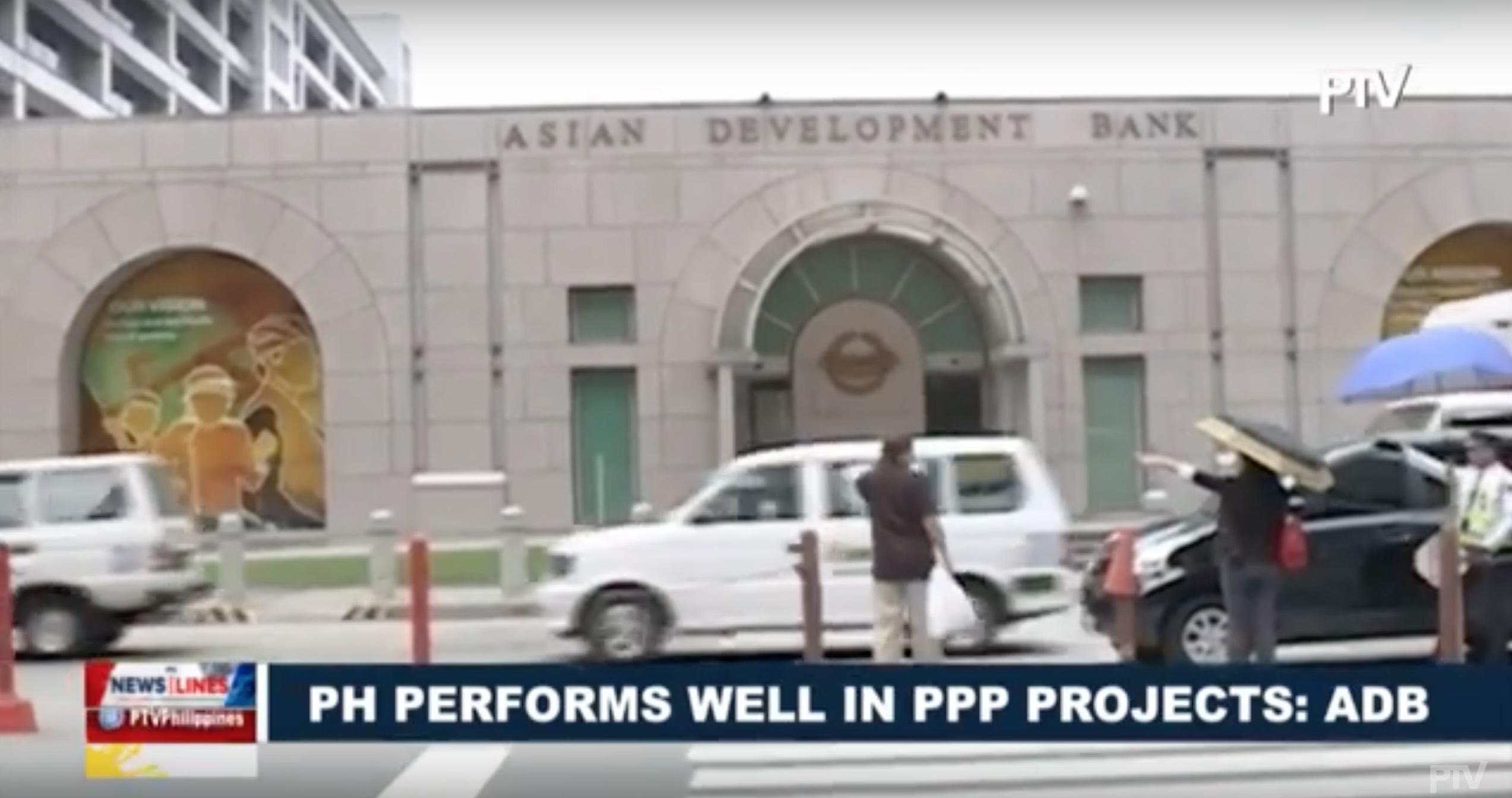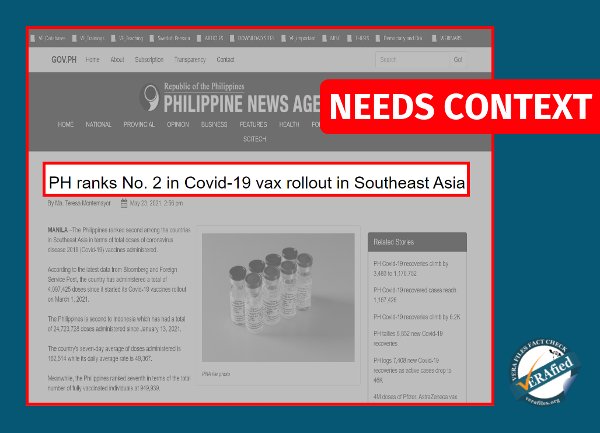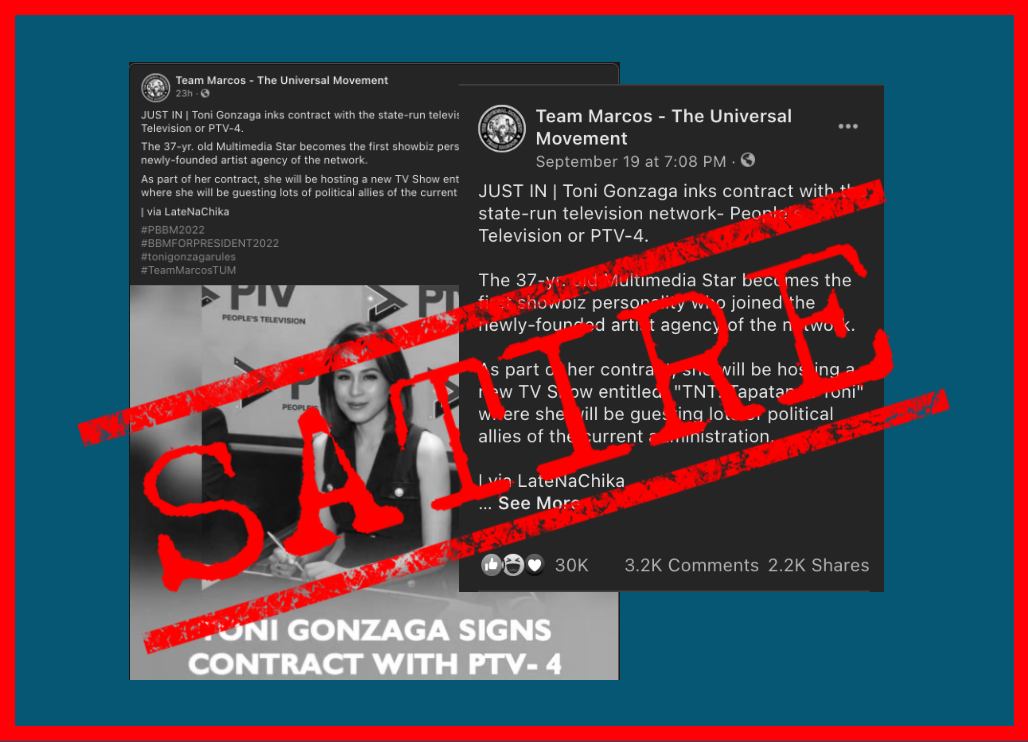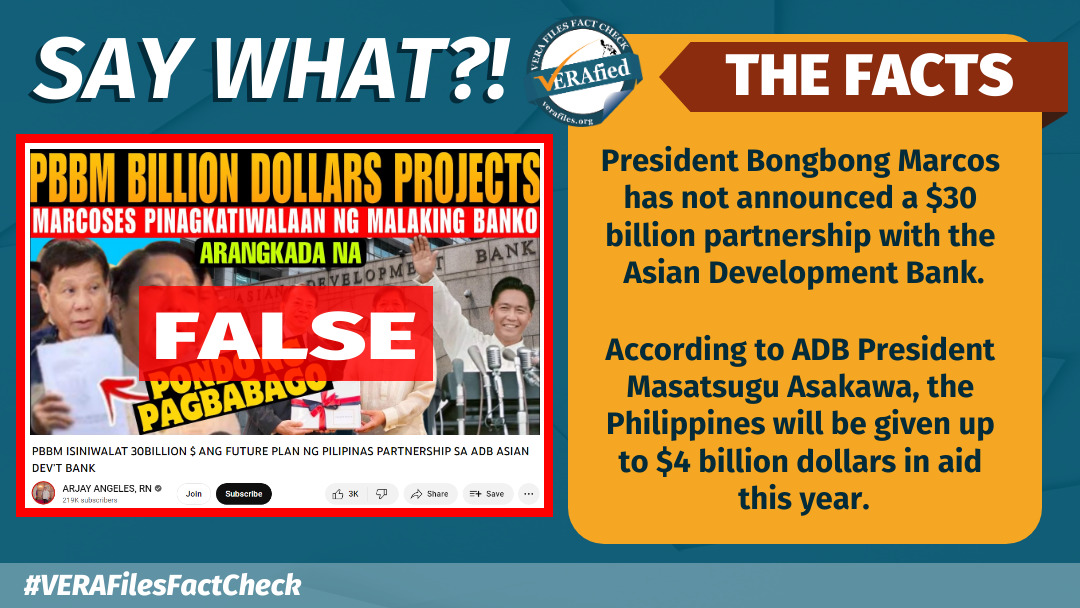State-run People’s Television Network (PTV) and the Philippine News Agency (PNA) posted Nov. 24 misleading news about a public-private partnership (PPP) report.
STATEMENT
The title and crawler of the PTV report, and the headline of the PNA story, are identical, claiming the Asian Development Bank (ADB) described the Philippines as performing “well” in its PPP projects:
“PH performs well in PPP Projects: ADB”
Source: People’s Television Network, Nov. 24, 2017
The content of the PTV report, a rundown of statistics about PPP projects, is almost the same as the first, second, third and seventh paragraphs of the PNA report:
“The Asian Development Bank said the Philippines had a total 119 projects under itsPublic-Private Partnership of PPP Policy, since the government enacted theBuild-Operate-Transfer or BOT Law in 1990.
ADB’s PPP Monitor showed that these PPP projects were valued at 56.9-billion dollars.
The report also noted that 65 percent of PPP projects in the Philippines were in the energy sector.The ADB report showed that the Philippines has 77 PPP projects under the energy sector, 27 in transport, seven in information and communications technology, six in the water sector, and two for social infrastructure.”
The PNA story includes a quote, attributed to the ADB report, ostensibly to support its headline:
“The Philippines has performed well during the recent years led by sound policies of successive administrations,’ the PPP Monitor stated.”
Source: Philippine News Agency, Nov. 24, 2017
FACT
Neither the PTV nor the PNA report accurately reflects the evaluation of the 599-page ADB PPP Monitor, released Nov. 23, which identified both key developments and challenges.
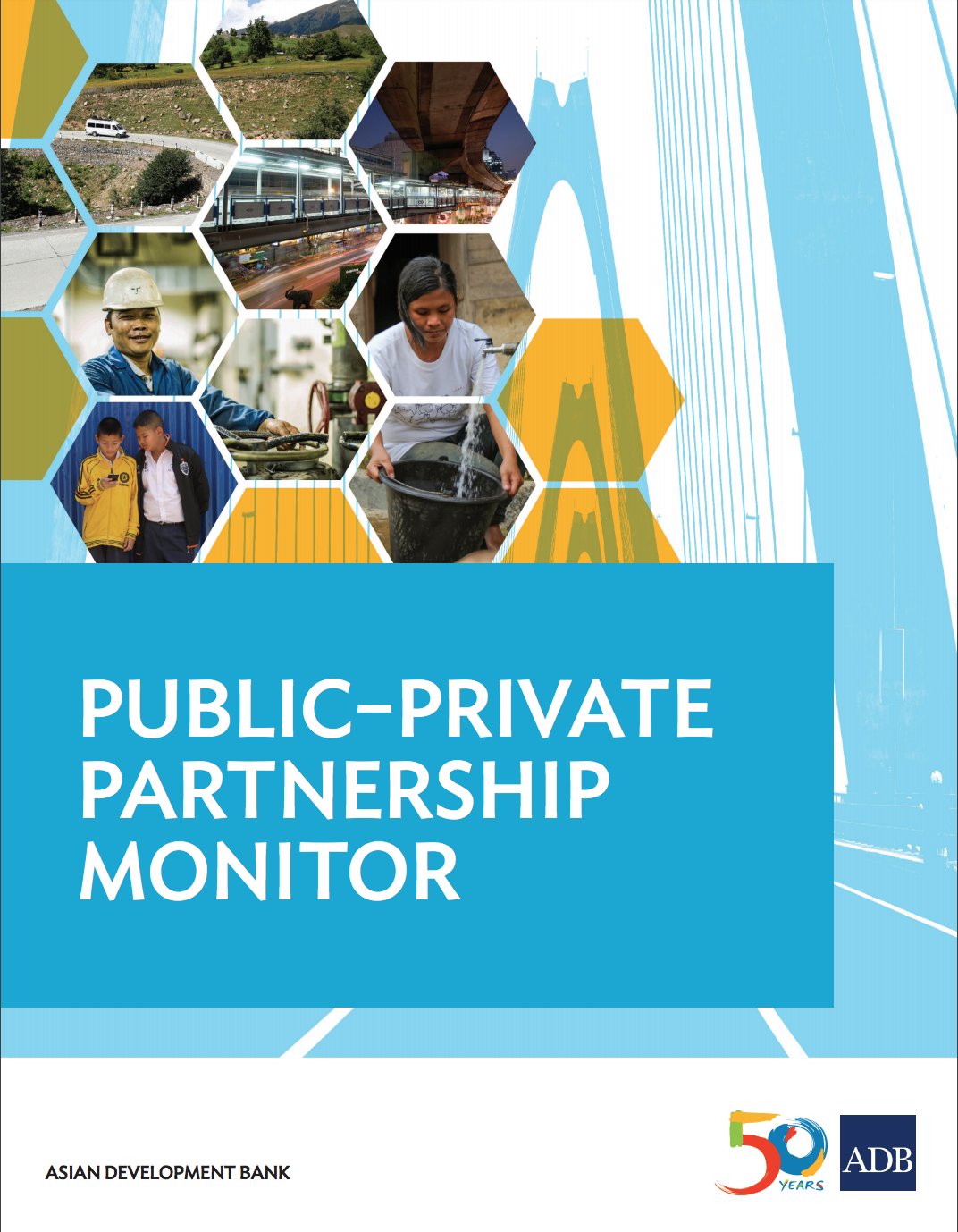
Developments include:
- The issuance of certain policy circulars which, among others, regulate compensation payments, and institutionalize the criteria in identification, selection, and prioritization of projects;
- The Philippines, along with Thailand and India, having a developed financial market which can provide longer-tenor loans in local currency to support infrastructure.
Source: Public-Private Partnership Monitor
Challenges include:
- The 40 percent foreign ownership limit for infrastructure projects where the operation requires a public utility franchise.
- Failed bidding in March 2016 of the Laguna Lakeshore Expressway Dike project, which ADB called “one of the largest PPP deals administered by the DPWH;”
- Delays and insufficient market interest in mass transit system projects, including the planned LRT-6 and LRT-7, and the operation and maintenance of LRT-1 and MRT-3;
- Termination of concession in the Philippine Orthopedic Center modernization project and lack of progress in the Bulacan Medical Center Dialysis Unit Expansion project.
Source: Public-Private Partnership Monitor
Specifically the challenges were not mentioned by PTV, but appeared in other news reports:
- Philippine Daily Inquirer: “The Asian Development Bank sees the foreign investment cap provided in the Constitution as a major deterrent to the development and success of public-private partnerships (PPP) in the Philippines.”
- Bloomberg TV Philippines: “But on the other hand, the Philippines also has one of the most restrictive economies in developing Asia, keeping out foreign capital through ownership limits.”
- Philippine Star: “Among the challenges confronted by investors in these types of projects, (ADB PPP specialist Alexander Jett) said, is the short term of office of local chief executives, which do not match the lifespan of the PPP projects.”
- Malaya: “‘There’s been a lot of demand in the LGU level, but there are challenges in the Philippines. One challenge is that mayors are elected for three years, and PPPs have a lifespan of 20 to 25 years,’ Jett said.”
The PNA story did mention the 40 percent foreign ownership limit, yet the quote about the Philippines performing “well” does not appear in the ADB PPP Monitor as claimed.
A Nov. 24 Philippine Daily Inquirer report titled ‘ADB sees foreign ownership cap hindering further development of PPP market’ used a longer version of the quote:
“The Philippines has performed well during the recent years led by sound policies of successive administrations. Accompanied by strong economic growth, prudent fiscal management had reduced the general government net debt down to 34 percent of (gross domestic product) in 2016 from 68 percent in 2003.”
Source: Philippine Daily Inquirer, ADB sees foreign ownership cap hindering further development of PPP market
The quote is used at the end of the report, but unlike the PNA report, is not attributed to the PPP Monitor, only to “ADB.”
A Nov. 24 Bloomberg report contains a video interview of ADB PPP specialist Alexander Jett, who describes the Philippines as having “done well” in terms of boosting investor confidence, still not a blanket claim as the PNA and PTV reports headlined:
“The Philippines has done well in the fact that the pipeline has been credible and as long as they keep that up the investors will stick to the interest. There may be delays but when the government selects a project, they know the bidders have faith that it will happen and that’s important. So it’s important to create that certainty so that investors feel they are not wasting their time. And I think the Philippines has done a very good job of that.”
Source: Bloomberg TV Philippines, Nov. 24, 2017
Sources:
Asian Development Bank, Public-Private Partnership Monitor
ADB, ADB Launches First Annual Report Monitoring Progress of PPP Environment in Member Countries
PTV, Nov 24, 2017
Public-Private Partnership Center website, PH performs well in PPP projects: ADB
Philippine Canadian Inquirer, PH performs well in PPP projects: ADB
Philippine Star, Municipal, health projects have great PPP potential – ADB, Nov. 25, 2017
Bloomberg TV Philippines, video report, Nov. 24, 2017
Malaya, Local PPPs constrained, Nov 23, 2017
Philippine Daily Inquirer, ADB sees foreign ownership cap hindering further development of PPP market, Nov. 23, 2017
(Guided by the code of principles of the International Fact-Checking Network at Poynter, VERA Files tracks the false claims, flip-flops, misleading statements of public officials and figures, and debunks them with factual evidence. Find out more about this initiative.)
